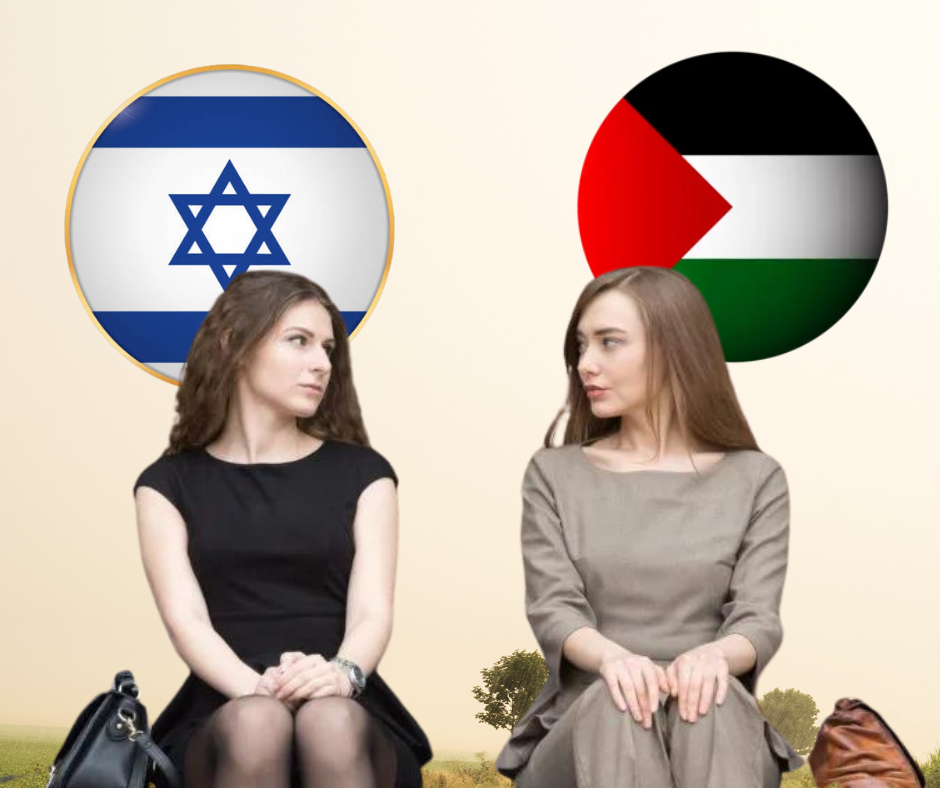A friend sought advice regarding a forthcoming seder. His hosts had issued a pre-Passover caution: the Haggadah they intended to use advocates freedom for Palestine and its people. This preemptive disclosure hinted at potential discomfort during the seder. I counseled my friend to recognize his hosts’ sincerity and compassion for Palestinians. Yet, he should also request mutual respect for his support of Israel in return. This guidance stemmed from the Torah which asks us to be uncomfortable with opposing expressions of holiness.
Since October 7, Jewish households have grappled with difficult discussions. Some are chiefly concerned about the loss of life in Gaza, while others prioritize safeguarding the Jewish homeland. I suspect that at least one invitation to my seder was declined because of my strong support of Israel. However, I am deeply troubled by the threat to Israel and the loss of life in Gaza. Viewpoints can sometimes seem contradictory or unsettling. This tension is inherent in the tradition of grappling with the Torah’s complexities.
From the outset, the Torah emphasizes the sanctity of every life. We all descend from a common ancestor and bear the divine image. This reverence for all human beings transcends geographical, religious, national, or racial boundaries. Yet, the Torah offers other directives that conflict with these initial, sacred values.
The Torah also recounts God’s pledge to grant the Hebrews the land of Canaan, which comprises present-day Israel and the “West Bank”; for some, this is Palestine. In the Torah portion read on the Shabbat of Passover, we revisit this divine promise: “Mark well what I command you this day. I will drive out before you the Amorites, the Canaanites, the Hittites, the Perizzites, the Hivites, and the Jebusites.” Spanning three millennia, the Jewish people have asserted their God-given right to this land. Yet, this claim requires the displacement of one people to accommodate another. Even with the context of Jewish history, the quest for a homeland in the Holy Land presents a discomforting aspect of the Torah.
Jews have been attacked and massacred in their homeland and I despair over lost Jewish lives. Israeli forces have carried out incursions, often couched in pursuit of peace, and I anguish over Palestinian deaths. I can cry over the loss of life and support our claim to reside peacefully in Israel. Both are Torah.
Since October 7, conflicting perspectives have torn families apart. Some emphasize the sanctity of all human life, while others prioritize the safety and security of the Jewish state. Torah is at the core of both viewpoints. It is no wonder that the war in Gaza divides our families and communities. It is as if we continue to struggle to make sense of a Torah that both cherishes life and directs us to engage in God-sanctioned conflict.
Yet, no one perspective provides a comprehensive portrayal of the Torah’s teachings. The best we can do is to honor each person’s view if anchored in the Torah. Acknowledge that conflicting viewpoints can be formed with good intentions but neither is singularly perfect or correct in every situation. Without this form of reconciliation, the unraveling of our community worsens.
Each of us may firmly believe in the absolute correctness of our perspective. While interpretations may clash, tension is part of the uncomfortable reality of the Torah. However, the Torah is diminished when we disregard the diversity of views arising from holy roots.
Rabbi Evan J. Krame





